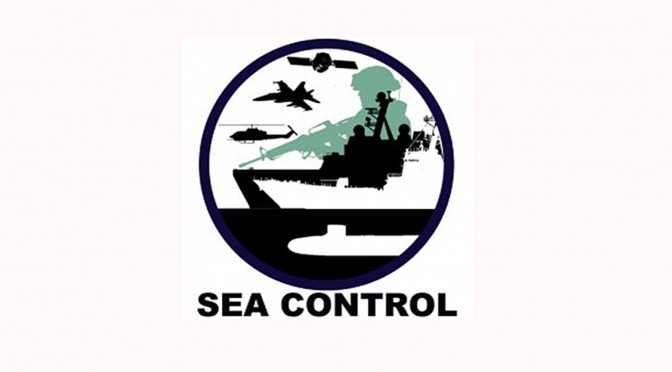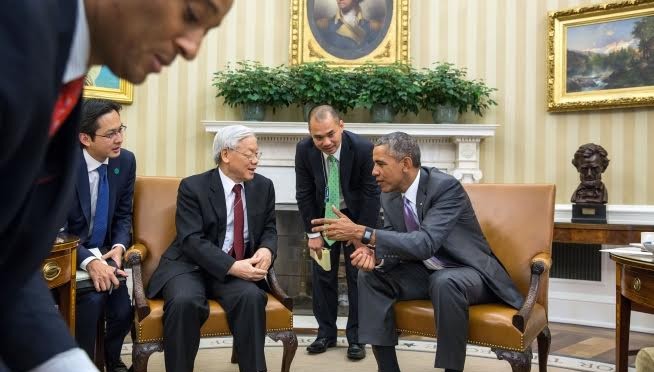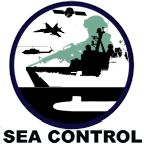By the CIMSEC Sea Control Podcast Team
Aloha Shipmates! We at the CIMSEC Sea Control Podcast have put our heads together to come up with a 2021 Holiday Reading List. We’ve chosen books that we read and loved, and books that we’re looking forward to reading next year. Enjoy!
______________________________________________________________________________________
Dmitry Filipoff
CIMSEC Director of Online Content
The Second Mountain: The Quest for a Moral Life by David Brooks
Brooks has been writing and speaking for years on how individuals discover meaning in their lives and find fulfillment. Philosophical, yet practical and well-grounded in extensive social sciences research, The Second Mountain offers concrete insights into how one can make meaning of their pursuits and redefine their purpose. Brooks dives into specific and fundamental methods of how meaning can be derived, such as through building community, viewing life as a moral struggle, and making sense of individualism and to what extent it can be helpful or self-defeating. Excellently written and candidly delivered, The Second Mountain will enhance self-awareness around some of the most profound concerns of both individuals and societies.
The Sympathizer by Viet Thanh Nguen
A Vietnamese double agent is evacuated to the United States soon after the fall of Saigon, embedding himself into the expat community while faithfully still executing espionage. But while serving as the aide-de-camp to a plotting South Vietnamese general, the sympathizer is torn by questions of identity that return time and time again in his exploits. Northerner or Southerner? Half-white or half-Vietnamese? Victorious revolutionary or dejected exile? The sympathizer deftly navigates both American and Vietnamese society while securing personal bonds against destruction and pursuing his clandestine mission. But how will his conscience evolve in the face of mounting tragedies and double crosses? In this masterfully written work that earned the 2016 Pulitzer Prize for Fiction, author Viet Thanh Nguyen tells an engrossing tale of torn identity, post-war malaise, and moral tribulation.
The Battle for Leyte Gulf at 75: A Retrospective, Edited by Thomas J. Cutler
The Battle of Leyte Gulf was the last true fleet combat engagement between great powers, and one of the largest naval battles in history. The Japanese and American navies faced off in this climatic engagement toward the end of WWII, and by the end, the Imperial Japanese Navy ceased to exist as a credible fighting force. With no shortage of what-ifs and alternatives, the battle itself was a series of major clashes, deceptions, and controversial command decisions on both sides. In this book edited by Tom Cutler, renowned naval historians analyze and dissect this fascinating battle in all its complexity and scale. The result is a highly insightful work on a historic fleet combat engagement, and a must-read for navalists.
Jared Samuelson
Sea Control Host
The Fall and Rise of French Sea Power: France’s Quest for an Independent Naval Policy, 1940-1963 by Hugues Canuel
This follows the French Navy from its nadir in the smoke and wreckage of Mers-el-Kébir on 3 July 1940, its growth into a mix of French, British and captured Italian and German vessels over the course of World War II, and its gradual reconstruction, in part via NATO funding. Stick around for the notes and bibliography where you’ll find a wealth of NATO history references, and then listen to Sea Control 268 for an interview with the author and Dr. Brian Chao, who compares the French Navy’s rise to China and the PLAN.
The Huntress by Kate Quinn
I don’t make enough time for fiction, but there is a space reserved for the release of every new Kate Quinn novel. Writing aside, I enjoy learning about a piece of history I hadn’t previously encountered. In the case of The Huntress, you’ll be introduced to the Night Witches, the women pilots who served as flying artillery supporting the Red Army during the Second World War.
Say Nothing: A True Story of Murder and Memory in Northern Ireland by Patrick Radden Keefe
Say Nothing appeared on a slew of “best of” lists when it was released in 2019. It explores the disappearance of Jean McConville, a mother of ten who disappeared in December 1972. It is part mystery, part sprawling history of The Troubles from the highest political levels to individual bullet-riddled buildings in the streets of Belfast.
Voices from the Shoreline: The Ancient and Ingenious Traditions of Coastal Fishing by Mike Smiley
I requested a review copy expecting to find a highly technical description of shoreline fishing techniques. While the book contains excellent descriptions of every method British fishermen have used to bring in salmon and herring over the centuries, it reads like a travelogue. Each chapter is filled with interviews conducted while the author traversed Britain’s west coast fishing towns. The fisherfolk and their slowly dying lifestyle are as much in focus as any specific net type.
Walker Mills
Sea Control Host and CIMSEC Associate Editor
Alpha: Eddie Gallagher and the War for the Soul of the Navy Seals by David Philipps
This new book by Pulitzer-winning, investigative journalist David Philipps not only details the infamous Eddie Gallagher trial and his murder of an ISIS detainee in Mosul, but also the deployment that led up to it. Philipps reconstructs the deployment from interviews with SEALs and other personnel who were there and paints a clear picture of a leadership crisis and an elite culture gone wrong. I found the book to be absolutely riveting and it should be required reading for junior officers.
The Tastes of War: World War Two and the Battle for Food by Lizzie Collingham
I’ve had this book on my shelf for a while now, but I was finally convinced to read it cover to cover by an essay in Strategy Bridge. I had admittedly been pilfering it for primary sources about Guadalcanal…But the book is fascinating and covers an aspect of conflict that most Americans don’t consider, yet one that could be increasingly important – especially with sea resource depletion and conflicts over fisheries.
To-Be-Read:
Developing the Naval Mind by Benjamin F. Armstrong and John Freymann
As someone who has written about and promoted more naval-focused education for Marines, this is absolutely on my list to read in 2022. I’m eager to read it based on the strength of Armstrong’s Small Boats and Daring Men (which also made the list), and his other writing which we’ve been fortunate to cover on the Sea Control Podcast.
Marie Williams
Sea Control Editor
Nothing is Impossible: America’s Reconciliation with Vietnam by Ted Osius
This account of the veteran-led U.S.-Vietnamese reconciliation in the 1990s, and of the famous John McCain-John Kerry friendship, got me rethinking what (I thought) I knew about ‘big wins’ in diplomacy, and what patriotism, duty, and trust-building mean in practice. Also, as Southeast Asia is increasingly a site of U.S.-Chinese strategic competition, this book is a must-read for anyone seeking to understand the legacy of U.S. military engagement in the region, and the importance of military-to-military relationships going forward.
To-be-read:
The New Rules of War: Victory in the Age of Durable Disorder by Sean McFate
According to Adm. James Stavridis (ret.) McFate is “a new Sun Tzu.”
Anna McNeil
Sea Control Host
The Great Pacific War: A History of the American-Japanese Campaign of 1931-33 by Hector C. Bywater
Fascinating to think that whether by correlation or causation, this book predicted many of the events of WWII’s War in the Pacific with great accuracy. Writing a whole campaign plan on the basis of a fiction book…surely it is simply not done?!
2034: A Novel of the Next World War by Elliot Ackerman and Admiral James Stavridis
I have immense respect for Admiral Stavridis and his ability to interpret the trends of today and project them into the future. If imagination is the key to avoiding strategic surprise, then fiction is the best vehicle by which to deliver the bad news. Also check out our Sea Control 247 where we interviewed the authors!
The Woman Who Smashed Codes by Jason Fagone
Finally! A book about Elizebeth Smith Friedman — a linguist, a cryptologist before it was cool, and she worked for the Coast Guard while we were still under the Department of Treasury. She and her husband, William, worked on some of the most important codes of their time. Nothing reads like the life and times of true heroes. This won NPR’s Best Book of the Year.
Snow Crash by Neal Stephenson
One of my classic favorites, I’m recommending this based on current relevance, it being where the re-branded Facebook name Meta comes from. I’ve read a lot of books written in the cyberpunk genre, and this one was my first; it is the measure against which I compare all others. Not only does it have the Metaverse, but you’ve got a pizza delivery racket run by the Italian mob, levitating skater punks and self-aware robot dogs. Good times. Enjoy!
William McQuiston
Sea Control Editor
Missile Contagion: Cruise Missile Proliferation and the Threat to International Security by Dennis M. Gormley
In the wake of the most recent North Korean long-range cruise missile test and the rapid spread of smaller loitering munitions I found it helpful to sit down with a copy of Dennis Gormley’s prescient 2008 warning. Dennis Gormley aptly describes the incentives and mechanisms by which cruise missile technology has rapidly spread among smaller regional powers.
Hawaiki Rising: Hōkūle‘a, Nainoa Thompson, and the Hawaiian Renaissance by Sam Low
Hawaiki Rising is an engrossing history of the men and women behind Hōkūle‘a, the modern recreation of a traditional Polynesian double-hulled voyaging canoe which preserved the fading knowledge of traditional Polynesian navigation techniques and helped kick off the Hawaiian Renaissance. Particularly interesting are the traditional Polynesian navigation techniques which allowed Hōkūle‘a to sail from Hawai‘i to Tahiti without the use of any modern navigational aids.
Joshua Groover
Sea Control Editor
Small Boats and Daring Men: Maritime Raiding, Irregular Warfare, and the Early American Navy by Benjamin “B.J.” Armstrong
In Small Boats and Daring Men, Armstrong argues that traditional historical methods of thinking about naval strategy as a “bifurcated structure” focused on guerre de course (attacks on enemy commerce) and guerre d’escadre (naval war by fleet and warship battles) are incomplete. He proposes guerre de razzia (war by raiding) as the missing component and demonstrates its applicability through an analysis of eight events from the early history of the U.S. Navy including the raids of John Paul Jones, the Barbary and Quasi Wars, the War of 1812, and the US expedition to Sumatra. As a newcomer to naval strategy, I enjoyed the book because Armstrong makes a compelling argument for his case while telling a good story of the events.
To-Be-Read:
War Plan Orange: The U.S. Strategy to Defeat Japan, by Edward S. Miller
19 Stars: A Study in Military Character and Leadership, by Edgar D. Puryear, Jr.
Jonathon Frerichs
Sea Control Host
On Operations: Operational Art and Military Disciplines by B. A. Friedman
On Operations is a fantastic follow-up to Friedman‘s On Tactics. He concisely, yet thoroughly, explores the historical origins of the “operational level of war” while simultaneously challenging its very existence. He clearly frames out his challenge to the concept and proposes instead a focus on the application of operational art — the staff work that connects tactics to strategy. A fun read for any military practitioner. You can also check out our interview with Friedman and Tim Heck about their edited volume on amphibious operations On Contested Shores in Sea Control 220.
To Boldly Go: Leadership, Strategy, and Conflict in the 21st Century and Beyond edited by Jonathan Klug and Steven Leonard
This book is the perfect mix of fictional intelligence and envisioned futures of military conflict. The two editors miraculously string together over 25 short stories from a variety of authors — all connected through the framework of military-themed topics of leadership, strategy and conflict. Naval themes resonate throughout the book — making it a must-read for any naval enthusiast. Lastly, there are Easter Eggs galore throughout — I challenge any reader to read it straight through without jumping on Google to discover one of the Easter Eggs.
Ed Salo
Sea Control Editor
The ‘Stan by Kevin Knodell, David Axe, and Blue Delliquanti, and Machete Squad, by Brent Dulk, Kevin Knodell, David Axe, and Per Darwin Berg
While we think of books that help us to understand war and its consequences, we do not always look at comic books or graphic novels. These two graphic novels that came out in 2018, but that I finally read this year, provide insight into our nation’s 20 year war in Afghanistan in a way that is accessible. The ‘Stan provides illustrated portrayals of interviews with everyone from a
Taliban member, to refugees, to combat troops. Machete Squad is a memoir of a combat medic, and it tells the story of those on the ground. I highly recommend both of these graphic novels.
Information Hunters: When Librarians, Soldiers, and Spies Banded Together in World War II Europe by Kathy Peiss
Kathy Peiss examines efforts of U.S. librarians and archivists during the Second World War, first to gather open source intelligence, and then to gather and preserve books, manuscripts, and other sources during the war and post-war periods to build the Library of Congress and other research collections across the nation. Peiss’ book is a joy to read. It is the perfect companion piece for Robert Edsel’s The Monuments Men: Allied Heroes, Nazi Thieves, and the Greatest Treasure Hunt in History or Joshua Hammer’s The Bad-Ass Librarians of Timbuktu And Their Race to Save the World’s Most Precious Manuscripts, which also dealt with efforts to save important manuscripts during a more recent war. The book has a place on the book shelf of anyone interested in intelligence gathering, library science, and the power of information warfare.
Andrea Howard
Sea Control Host
New this year, this book avoids the trap of oversimplifying Russian politics down to unique Russian culture or the cult of personality that is President Vladimir Putin. Instead, Frye drives home the role of Russian public opinion on the complex tradeoffs made by Moscow, paralleling other governments like Venezuela, Turkey, and Hungary.
______________________________________________________________________________________
That’s all the books for now. On behalf of CIMSEC, we wish you a safe and happy holiday season!






